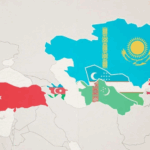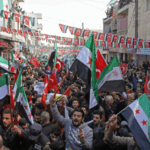
UN Women
Position description
Description of Responsibilities/Scope of Work
Analysis of Women’s Economic Empowerment Solutions
- Conduct an in-depth analysis of the solutions developed under the regional programme to enhance women’s employability and entrepreneurship in Palestine, focusing on three intervention pillars:
- the care economy.
- climate-smart agriculture, and
- STEM careers.
Development of Women’s Economic Empowerment Solutions
- Develop value-generating business models for each of the contextualized solutions.
- Test their viability and assess risks.
- Identify potential revenue sources to validate or refine the business model assumptions.
- Identify potential investors, stakeholders, blended finance mechanisms and partnership opportunities to support implementation of the adapted business models.
- Develop advocacy tools including technical briefs for each solution, including governance and implementation models to mobilize partnerships and financing.
Development of the Roadmap for Operationalizing the Solutions
- Produce a comprehensive roadmap for implementing solutions in the care economy, climate-smart agriculture, STEM sectors, and any additional identified areas. The roadmap should include:
- Sector specific context: In-depth analysis of challenges, opportunities, and trends in each sector, including socio-economic constraints, cultural specificities, and public policies. It should also examine gender dynamics and specific opportunities for women’s economic empowerment, with key statistics (female participation rates, employment by sector, investments, etc.).
- Key phases of deployment: Detailed description of essential implementation phases, their objectives, involved actors, success indicators, and timelines, ensuring stakeholder integration at all levels throughout.
- Priority actions: Strategic actions/activities for operationalization, aligned with identified needs and opportunities, with justification based on recent data for each solution.
- Strategic recommendations for legislative reform and advocacy: Proposals for legislative and regulatory reforms to address gaps and enable the solutions’ implementation and broaden women’s economic empowerment in the identified sectors. These should include advocacy suggestions for enacting new or amending existing laws.
- Resource allocation: Definition of resources needed for each phase, including cost estimates for actions/activities, funding needs, resource mobilization strategies, and training/capacity-building for key actors. Justification must be based on sector-specific needs and resource gaps.
- Governance, coordination, and financing mechanisms: Proposed governance structure for effective solution management, with roles/responsibilities of stakeholders and coordination mechanisms (public, private, civil society). Recommendations will include sustainable financing structures (e.g., PPPs, dedicated women’s empowerment funds, long-term sustainability strategies), based on best practices and sector-specific coordination needs.
- A monitoring and evaluation framework that includes indicators to track impact and progress, specifically measuring the number of jobs created through the implemented solutions in the targeted sectors and track the cumulative percentage of women’s employment from 2026 to 2030.
- Implementation timeline covering the 2026–2028 period.
Support the development of a multi-disciplinary programme
- Conduct complementary consultations as needed to support the design of the women’s economic empowerment programme including:
- Ideate and conceptualize possible interventions.
- Identify and address gaps if existed in the approach.
- Identify international best practices to introduce and national aspects to scale up.
- Map ecosystem players (strengths, weaknesses, opportunities, threats) aligned to the programme’s multi-disciplinary approach.
- Seek validation of ideas from key actors.
- Develop a multi-disciplinary programme on women’s economic empowerment programme including outcomes, outputs, activities, implementation plan, and M&E framework.
- Identify potential funders to support programme implementation.
Required Qualifications
Education and Certification
- Master’s degree or equivalent in Economics, Finance, Law, Gender or a related field is required.
- A first-level university degree in combination with two additional years of qualifying experience may be accepted in lieu of the advanced university degree.
- A project/programme management certification would be an added advantage.
Experience
- At least 7 years of experience as an economist, econometrics, and economic studies and research is required.
- Experience in Women Economic Empowerment and Employment Creation is required.
- Experience in programme design and development including development of M&E frameworks is required.
- Experience in leading research and analysis relevant to the assignment is required.
- Previous experience working with the United Nations or other international organizations is desirable.
- Experience working in Palestine and or Arab region is desirable.
- At least one sample of previous work (such as research report, policy paper, economic analysis or any other relevant work related to the assignment) to be attached as part of the Application.
Languages
- Fluency in English is required.
- Knowledge of Arabic or any other UN official language is desirable.
Application instructions
Please be sure to indicate you saw this position on geopolist.com
Apply Now
***Show some love and please mention geopolist.com* (Istanbul Center for Geopolitics) in your application***
***We also feel loved when you share it***




